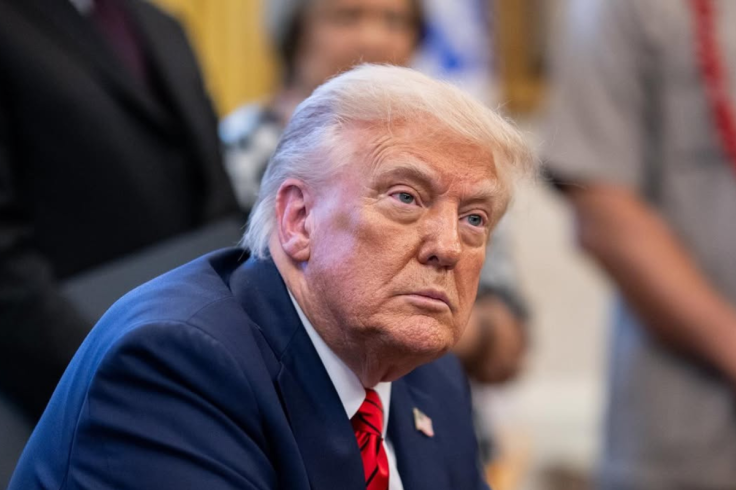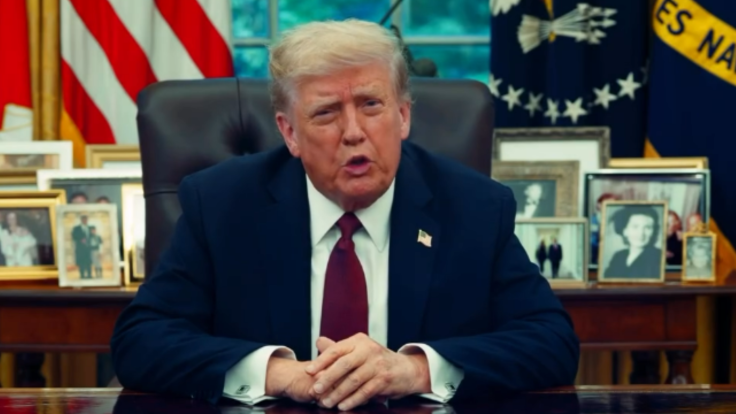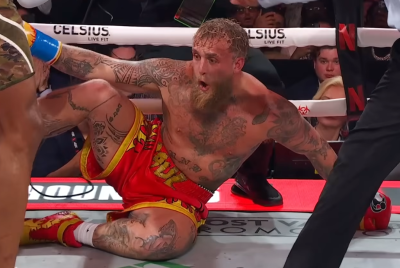'I Hope You All Come': Trump Urges Fans To Attend FIFA World Cup As US Visa Rules Spark Controversy
The controversy arises from the fact that visa rules reportedly enacted by Trump's administration are making entrance harder for many possible visitors

A surprisingly bold invitation from US President Donald Trump has gone out to global football fans and this comes amid sharp criticism by many over the new restrictive US visa and travel policies that may bar many from attending the 2026 FIFA World Cup which is the biggest football tournament in the world.
Donald Trump's Public Appeal About the World Cup
While candidly speaking at the United Nations General Assembly, Trump put a spotlight on the United States' upcoming role as co-host of the 2026 FIFA World Cup and the 2028 Olympics as well.
'It's going to be very exciting', he exclaimed, and urged 'I hope you all come. I hope that countless people from all over the globe will take part'.
That message in many ways falls in line with his administration's effort to position the US as an open stage for global events whether it be sports or entertainment. But, he did not get all positive reactions, because while his speech framed the USA as welcoming, what many felt was that the policy reality tells a more complex story. This is based on the fact that according to reports, international travel to the US has been declining. Reportedly in August 2025, the inbound visits dropped 2.9% year on year according to data presented in these reports.
But FIFA's popularity worldwide is obviously immense as more than 1.5 million ticket applications from 210 countries were submitted in just one day during a FIFA presale round, according to reports reflecting massive global interest in football. As of this writing the expanded tournament will feature 48 national teams and 104 matches across 16 cities in the US, Canada and Mexico.
Why USA's New Visa Rules Might Affect the World Cup
The controversy arises from the fact that even as Trump issues this public invite, the visa rules reportedly enacted by his administration are making entrance harder for many possible visitors from across the world.
According to reports, an apparent 'visa integrity fee' of 250 USD (185 GBP approx) has been imposed on travellers from non-visa waiver nations, this is in addition to existing visa charges. Reports further suggest that average wait times for B-1/B-2 (tourism/business) visa interviews now exceed 169 days which could be a further hindrance unless the Trump administration gives special rules for the World Cup.
So as per reports, these possible constraints can disproportionately impact fans from countries such as Mexico, Argentina, Brazil which are basically big football fan culture nations that typically generate large World Cup fan blocs each time.
Now for travellers from visa-waiver countries (for instance mainly in Europe), the additional fee does not apply as of now. But reports highlight that even some of those potential visitors reportedly hesitate, as they are deterred by stories of border refusals or rigorous enforcement on arrival in the US.

Countries That May Face the Most Trouble Accessing the World Cup
Some countries might obviously face a harder time to attend the 2026 FIFA World Cup in the US as according to reports, overlaying the usual visa complications is a sweeping travel ban enacted by Trump's administration in June 2025, which affects nationals from 19 countries by fully banning visa issuance for 12 of them and partially restricting access for seven others. The nations reportedly facing full suspension include Afghanistan, Myanmar, Chad, the Republic of the Congo, Equatorial Guinea, Eritrea, Haiti, Iran, Libya, Somalia, Sudan and Yemen. Reports suggest that citizens of these countries are largely barred from obtaining new visas across most categories, although exemptions remain in place for diplomats, special immigrants and those with valid visas issued before the policy took effect. But, this will potentially hamper football fans from these countries to attend the World Cup.
Reports further suggest that seven other nations namely Burundi, Cuba, Laos, Sierra Leone, Togo, Turkmenistan and Venezuela are also under partial restrictions when it comes to visas. In these cases, tourist and student visas are especially difficult to secure if reports are accurate, though certain work or special categories may still be granted on a subjective basis.

Also, it is important to note that the ban does not apply to lawful permanent residents, and exceptions have been written for several classes of people depending on each case.
So now, some analysts reportedly warn that supporters from the banned or restricted nations will face a patchwork of delays, denials and lengthy vetting procedures that run directly against the spirit of Trump's public call for 'countless people' to attend. Their point is made by saying that even with exemptions, the uncertainty over how the rules are enforced creates barriers that risk limiting participation from precisely those corners of the world that see football as a rare unifying stage and are the most passionate about it.
© Copyright IBTimes 2025. All rights reserved.




















